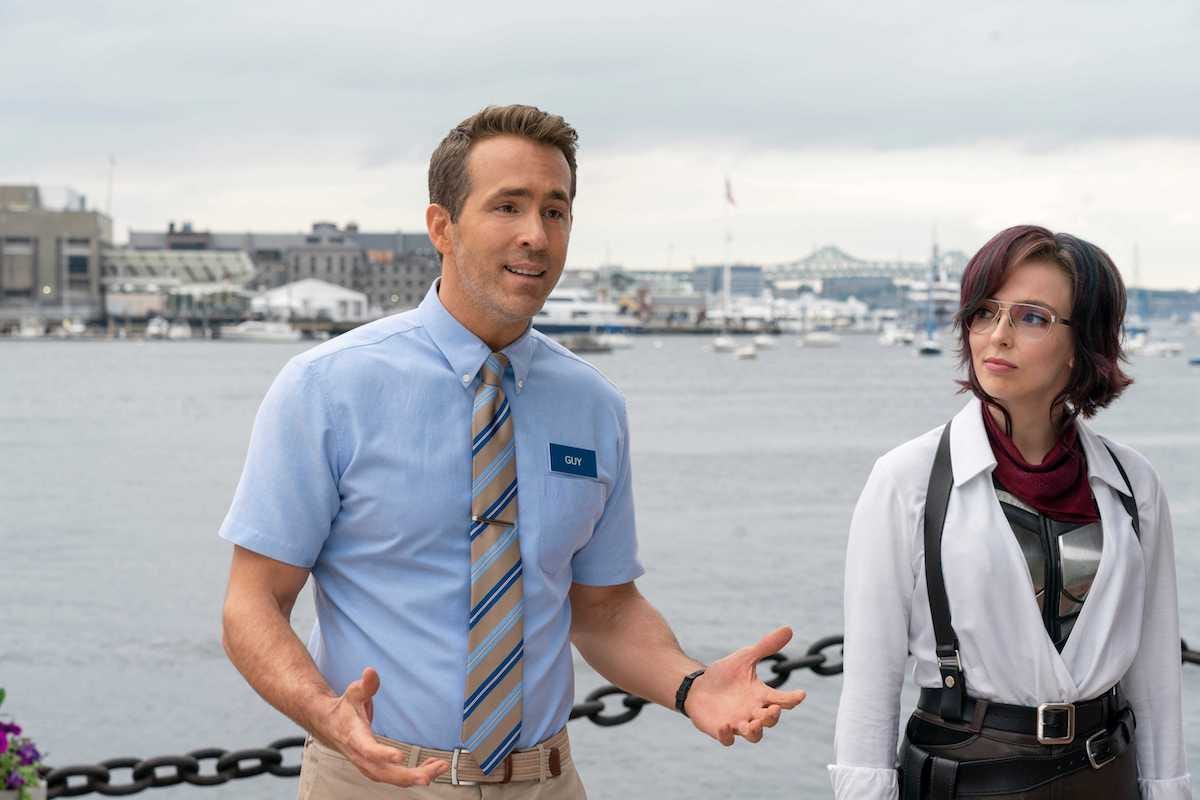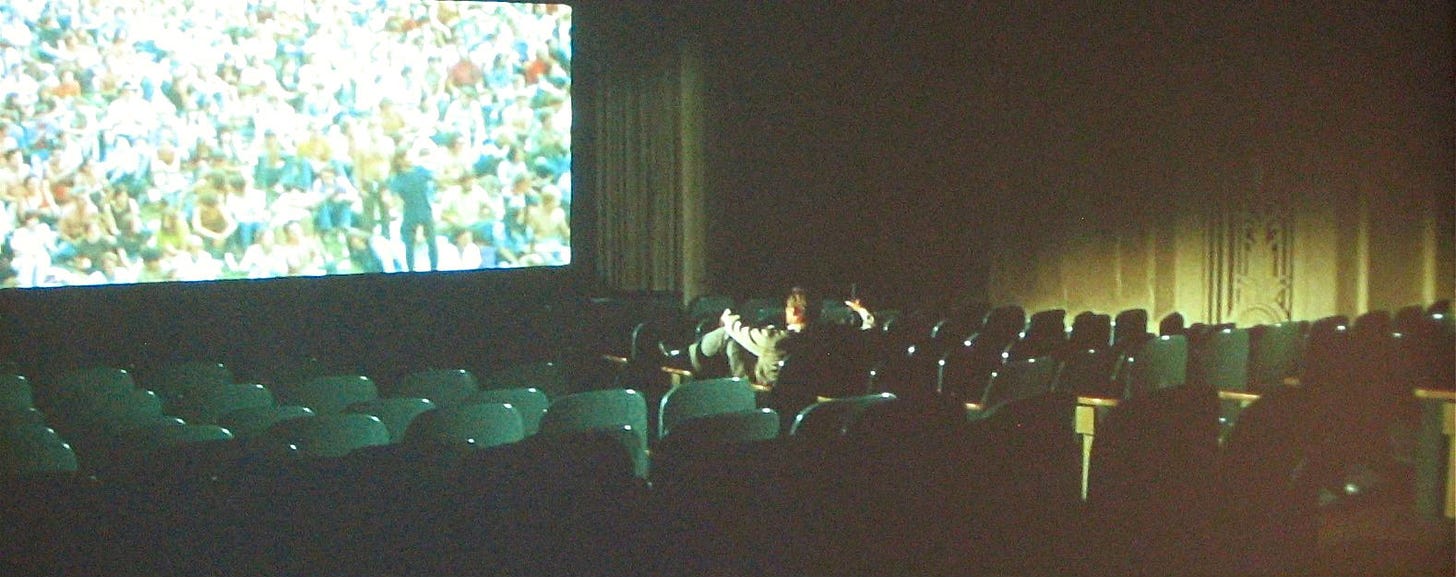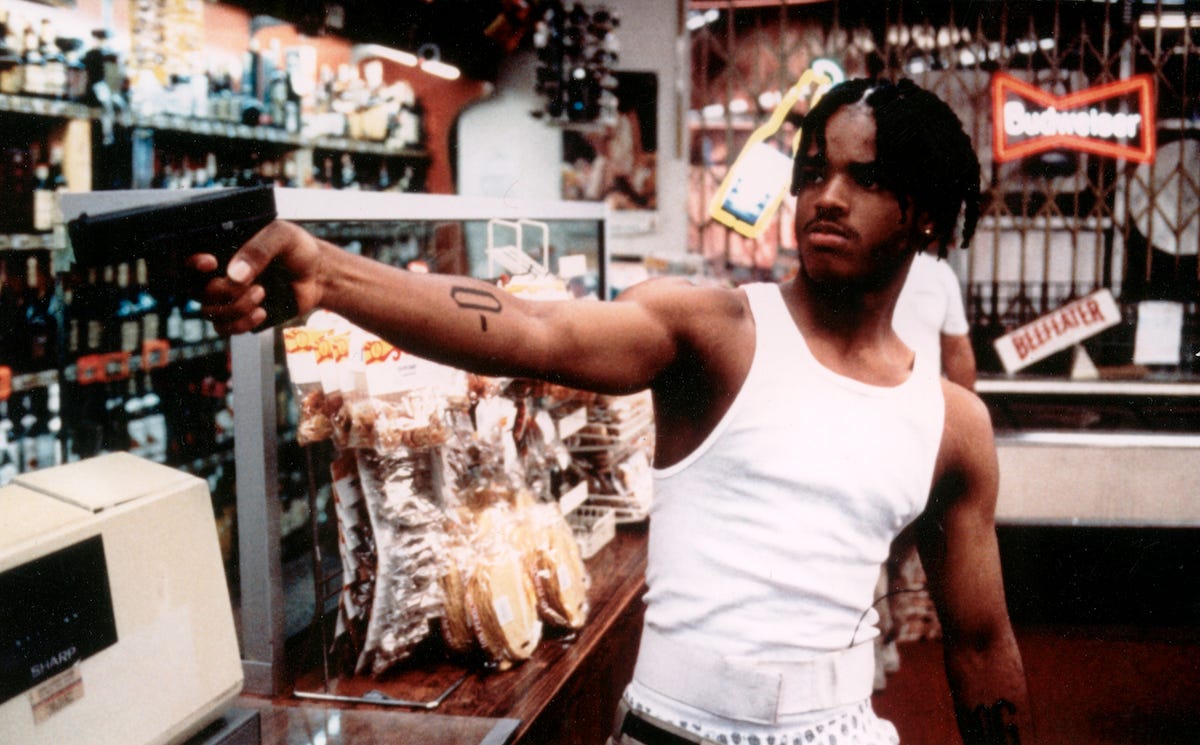'Free Guy' Review
Plus: Reduced box office grosses might not be the worst thing in the world.
Free Guy Review (Theaters)
There’s a tension at the heart of Free Guy.
The movie is, on the one hand, a plea for originality in the massive multi-billion-dollar business of mega-budgeted art. The film’s villain, Antwan (Taika Waititi), wants nothing more than to keep cranking out iterations of Free City, the video game within which non-player character (NPC) Guy (Ryan Reynolds) has gained sentience. When Keys (Joe Keery) suggests they use the self-aware code that helped bring Guy to life to make an original game, Antwan laughs in his face. Sequels, intellectual property: that’s where the money’s at. That’s what people want; it’s why you make familiar fast food instead of riskier gourmet options. Give the people what they want.
Turns out that Free City itself isn’t all that original itself. The game is built upon code originally written by Keys and his then-partner, Millie (Jodie Comer); Millie is suing Antwan because Antwan bought her and Keys’s game and then said he shelved it. And Millie is logging in to Free City every day to find proof of Antwan’s perfidy; in the course of her quest, she falls in love with Guy.
Here’s the tension: The film’s most rousing moments come during a pair of unexpected cameos (I won’t spoil them here) and when the movie—originally made by 20th Century Fox and now being released by Disney subsidiary 20th Century Studios, the Mouse House’s vestigial remnant of 20th Century Fox—deploys a pair of key pieces of Disney IP in stirring fashion. In other words, the familiar encroaches upon and displaces the novel in a way that will flood the pleasure centers of those who want nothing more than fast food. It feels like a mild cheat.
This is not to say that Free Guy isn’t entertaining and, frequently, very charming. Reynolds plays his NPC with a sort of childlike innocence and obliviousness that, in the hands of a less amiable fellow, would have been grating. As the teller of a bank in the game his monetary dreams are always just out of reach, but that’s fine: he’s still going to wish everyone a great day. His best friend Buddy (Lil Rel Howery)—get it, “Buddy” and “Guy”?—is a surprisingly loud security guard and just as dim, but just as friendly.
When Guy is told by Millie that he has to level up to be of any use to her, he goes viral in the real world by working his way up the game’s ladder performing random acts of kindness. You know: stopping robberies rather than committing them; disarming criminals rather than ravaging the innocent; saving fellow NPCs from speeding cars instead of running them over. That sort of thing. His wanton disregard for the sociopathic norms that accompany, well, all video games is charming to the rest of the world, and the Twitch streamers who comprise the lifeblood of the gaming ecosystem rally to his side as he forces people to think about the sadism of shooting defenseless animations in the face day after day.
And while it’s frequently very funny in slightly off-kilter ways—Guy’s surge of free will encourages The Barista to long for more than drip coffee and The Bombshell to write a feminist tract on the evils of men—Free Guy can only work to the extent you allow yourself to buy into and be won over by the chemistry between Reynolds and Comer. It is, for all its sci-fi and gamer-centric trappings, a romcom at heart. I’ve been a sucker for Reynolds since Van Wilder and Waiting, and Comer has a sort manic vulnerability that is deeply appealing. The two are just very good together, they’ve got charisma to spare.
While I could sometimes practically feel the buttons being pushed, Free Guy nonetheless won me over. I can’t wait for the sequel.
If you’re enjoying the cultural musings on this here Substack and at The Bulwark’s site—make sure to check out my essay on Prime Video’s new Val Kilmer documentary and Bill Ryan’s look at the work of the Coen Brothers—make sure to sign up for a Bulwark+ membership! Not only will you help keep this operation sustainable, you’ll also gain access to the comments section of this newsletter and members-only episodes of Across the Movie Aisle.
More Theaters, Fewer Showtimes, Higher Ticket Prices … and Smaller Budgets?
On an earnings call this week, AMC CEO Adam Aron highlighted that the movie theater company is, despite continued concern over COVID and the dread Delta variant, in better shape than it has been for quite some time.
There are two big reasons for that. The first is the surge in AMC’s share price driven by meme-stockholders. Though down from a peak of $72 to the low-$30 range, the stock surges allowed AMC to eliminate a great deal of debt and pick up a few distressed assets along the way in still-hot moviegoing markets like Los Angeles.
The second reason AMC sees itself in good shape is because the company is shifting its strategy for showing movies. First, ticket prices are a bit higher, increasing to an average of $10.50 around the country. And, second, they’re showing fewer screenings of movies and at times when more people are likely to see them. While this is bad news for folks like me who preferred mid-day showings of movies while the kids were in school and fewer people were in attendance, it undoubtedly makes sense to the theater company in terms of keeping employee costs down by maximizing revenue per showtime.
AMC thinks it can get away with reducing convenience and raising prices at the same time because we’ve seen in the immediate aftermath of COVID that there’s still a core group of moviegoers who want to see things in movie theaters. Looking at weekend-to-weekend drops makes this obvious: even well-reviewed movies that have gotten a thumbs-up from audiences like A Quiet Place Part II are dropping nearly 60 percent between their first and second weekends. Black Widow and F9 both declined by two-thirds in their second frame. Space Jam: A New Legacy surprised people by debuting with $31 million but dropped like a stone in its second weekend, down a nasty 69 percent.
That core group is showing up and paying a little more because they love theaters. But that core group isn’t big enough to make nine-figure projects like Black Widow or F9 or Space Jam profitable, particularly since China seems to have closed its markets to American blockbusters for the time being. This core audience might, however, be big enough to make a movie like A Quiet Place Part II (supposedly budgeted in the $60 million range) profitable and it might be big enough to make this weekend’s Don’t Breathe 2—the first iteration of which cost about $10 million—profitable.
My point, simply, is this: If your core audience shrinks—and I don’t think anyone would argue against the idea that the core audience for theatrical moviegoing has shrunk somewhat, at least temporarily—you’re going to have to compensate elsewhere. And one place to compensate: budgets. The mid-budget movie has long been an endangered species, with adult audiences having fled to premium cable and streaming services when they want something free of spandex and CGI.
A world in which the mid-budget movie makes a return would be pretty wonderful, so long as there’s more on tap than horror sequels and Gerard Butler action flicks (and I say this as someone who is quite fond of both horror sequels and Gerard Butler action flicks). Heck, it’d be the perfect time for a new Coen Brothers movie to hit screens if it weren’t for, well, you know.
Assigned Viewing: Menace II Society (HBO Max)
The big news in the world of home video this week is that the Criterion Collection is, finally, getting into the 4K business. The headline: “Citizen Kane to lead Criterion’s first 4K slate.” The real news: The Hughes Brothers’ debut masterpiece, Menace II Society, is returning to the Criterion Collection.
I say “returning” because Menace II Society was one of the Collection’s Laserdisc releases. But Menace has long deserved a proper home-video release, complete with documentaries and video essays and new interviews and commentary tracks and the like. And the Hughes Brothers deserve to be treated like proper auteurs, directors with vision and voice working within the studio system to produce interesting work.
If you want to remind yourself of why Menace II Society is worth the Criterion treatment, the film is on HBO Max through the end of the month. The Hughes Brothers’ examination of life during a summer in Los Angeles’s poorer environs is intense and frequently difficult to watch: not a celebration of the mindless violence often on display in inner city communities, but a consideration of it, an examination of it, an effort to wrestle with its origins without offering an easy, moralizing way out. (Also: Menace II Society makes an excellent double feature with Deep Cover, also on HBO Max at the moment. Both are about subcultures running out of control, they’re just looking at different subcultures.)






Very interesting regarding AMC.
Free Guy, is a movie I'll pass on.